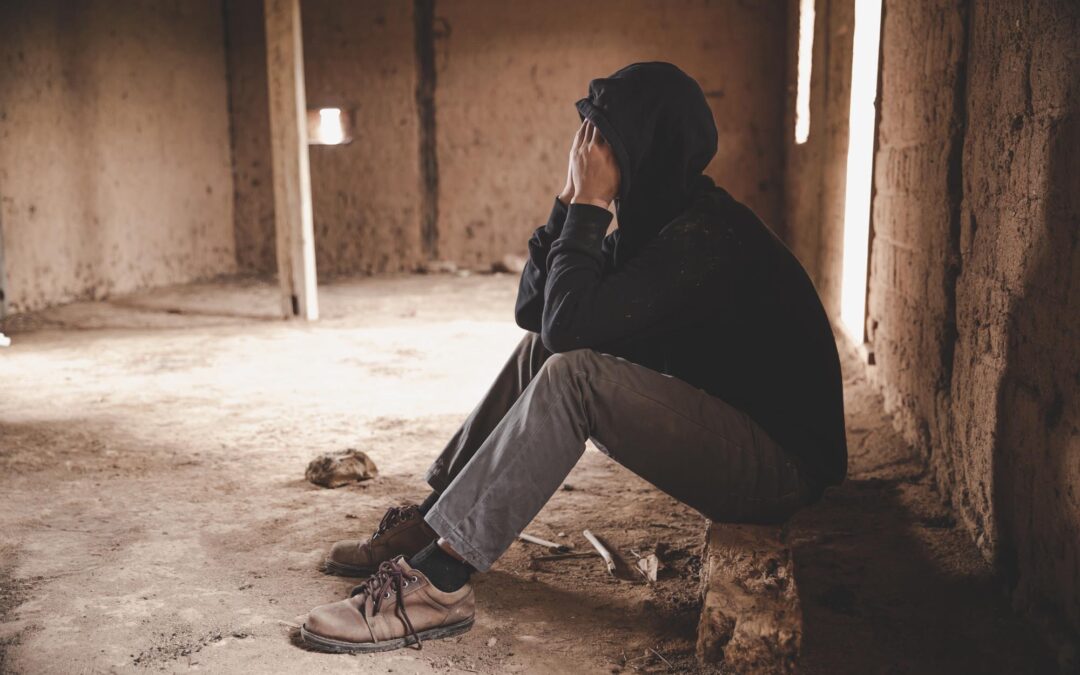The destructive nature of heroin addiction often extends far beyond the physical dependence. Broken trust with loved ones can be a significant hurdle on the road to recovery. Rebuilding trust takes time, patience, and a genuine commitment to change. This article explores the challenges of rebuilding trust after heroin addiction and offers practical steps for individuals in recovery to mend broken relationships.
Understanding the Impact of Heroin Addiction on Trust
Heroin addiction is a powerful disease that can lead to manipulative behavior, broken promises, and financial dishonesty. Loved ones may have been lied to, stolen from, or emotionally neglected during the throes of addiction. These actions understandably erode trust and create feelings of anger, resentment, and fear.
According to the National Institute on Drug Abuse (NIDA), “Heroin addiction can have a devastating impact on a person’s life, affecting their physical and mental health, relationships, work, and finances”. Rebuilding trust is crucial for a person in recovery to reintegrate into a supportive and healthy social circle.
The Importance of Honesty and Open Communication
The foundation of rebuilding trust is honesty and open communication. This means being truthful about past actions, current struggles, and future goals. It also involves being open to discussing the impact of addiction on loved ones and acknowledging the pain caused.
At Advanced Addiction Center, we understand the importance of open communication in recovery. Our therapists create a safe space for individuals to express their feelings and work towards rebuilding trust with loved ones.
Here are some tips for promoting honest communication:
- Schedule regular check-ins: Dedicate time to talk openly and honestly with loved ones.
- Be willing to listen: Allow loved ones to express their hurt and anger without interrupting.
- Focus on the present and future: Acknowledge past mistakes but emphasize your commitment to recovery and rebuilding trust.
Taking Responsibility and Making Amends
While apologies are important, rebuilding trust requires more than just words. Taking responsibility for past actions and making amends demonstrates a genuine desire to change. This may involve repaying stolen money, fulfilling neglected obligations, or simply being more present and reliable.
It’s important to note that making amends should be done thoughtfully. Don’t overwhelm loved ones with unrealistic expectations or try to force forgiveness. Focus on rebuilding trust through consistent, positive actions.
Building a Support System for Recovery
Having a strong support system is a cornerstone of successful heroin addiction recovery. This network of individuals provides encouragement, accountability, and a sense of belonging during a challenging time. Here’s a deeper dive into building a support system specifically tailored for heroin addiction recovery:
1. Formal Support Systems:
- Treatment Centers and Support Groups: Many treatment centers offer support groups specifically designed for individuals recovering from heroin addiction. These groups provide a safe space to share experiences, learn coping mechanisms, and gain strength from others on a similar journey. Look for programs offered by Advanced Addiction Center or search for groups through resources like the National Institute on Drug Abuse (NIDA).
- Therapists and Counselors: Therapists specializing in addiction can be invaluable assets in recovery. They can provide individual or family therapy to address underlying issues that contributed to addiction, develop healthy coping mechanisms, and work on rebuilding trust with loved ones. Advanced Addiction Center offers therapy programs specifically designed to address the needs of individuals and families affected by addiction.
- Support Groups for Loved Ones: Heroin addiction impacts not just the addict but also their loved ones. Support groups for families and friends can provide a safe space to share experiences, learn coping mechanisms for dealing with addiction, and gain support from others who understand the situation. The National Council on Alcoholism and Drug Dependence (NCADD) offers resources for finding family support groups.
2. Informal Support Systems:
- Friends and Family: Supportive friends and family members can be a powerful source of strength during recovery. Be open and honest about your struggles and progress. Communicate your needs and ask for support in specific ways.
- Sponsors: In 12-step programs like Narcotics Anonymous (NA), sponsors are individuals who have successfully navigated their own recovery and offer guidance and support to newcomers. Sponsors can provide valuable mentorship and encouragement throughout the recovery journey.
- Recovery Coaches: Recovery coaches are trained professionals who provide ongoing support and guidance outside of formal treatment programs. They can help individuals develop healthy routines, stay accountable to recovery goals, and navigate challenges that arise during recovery.
3. Building a Strong Support Network:
Here are some tips for building a strong and effective support system:
- Identify Who You Can Trust: Surround yourself with people who are genuinely supportive of your recovery and believe in your ability to succeed.
- Set Boundaries: It’s important to establish healthy boundaries with individuals who may not be supportive of your recovery or who may trigger cravings.
- Be Open and Honest: Communicate your needs and struggles openly with your support system. Let them know how they can best support you on your journey.
- Be Patient: Building trust and strong relationships takes time. Be patient with yourself and your support system as you work together.
Remember, your support system is there to help you, not judge you. Don’t be afraid to reach out for help when you need it.
For additional resources on building a support system for addiction recovery, you can explore the following:
- The National Alliance on Mental Illness (NAMI): NAMI offers resources and support groups for families dealing with addiction [10].
- The Substance Abuse and Mental Health Services Administration (SAMHSA): SAMHSA provides a national helpline for individuals and families facing mental and/or substance use disorders.
The Role of Forgiveness in Rebuilding Trust
Forgiveness is a complex process, and it’s important to understand that it may not happen overnight. Loved ones may need time to heal and may not be ready to fully forgive right away.
Here are some resources that can help with forgiveness:
- The Gottman Institute: The Gottman Institute offers resources on forgiveness in relationships.
- HelpGuide: It provides information on the benefits of forgiveness and how to forgive someone.
While forgiveness from others plays a role, self-forgiveness is also crucial for individuals in recovery. Accepting the past and focusing on positive change can help move forward with a sense of peace and self-compassion.
The Role of Therapy in Rebuilding Trust
Therapy can be a valuable tool in rebuilding trust after heroin addiction. Therapists can help individuals develop healthy coping mechanisms, address underlying issues that contributed to addiction, and learn effective communication skills. Additionally, therapy can be a safe space to process past hurts and work towards forgiveness.
Advanced Addiction Center offers individual and family therapy to help individuals and families rebuild trust after heroin addiction. Our therapists are experienced in helping people navigate the challenges of addiction recovery and build stronger relationships.
Rebuilding Trust is a Journey, Not a Destination
Rebuilding trust after heroin addiction takes time, effort, and a genuine commitment to change. It’s a journey with setbacks and challenges, but with honesty, open communication, and a strong support system
References
1. National Institute on Drug Abuse (NIDA). (2020, September 24). Heroin.
2. Advanced Addiction Center. Advanced Addiction Center website
3. Advanced Addiction Center. (n.d.). Support Groups.
4. National Institute on Drug Abuse (NIDA). (2022, March 28). Treatment Approaches for Drug Addiction: DrugFacts.
7. HelpGuide.org. (2021, October 28). Forgiveness: How to Let Go of Anger and Resentment.
8. National Council on Alcoholism and Drug Dependence (NCADD).








